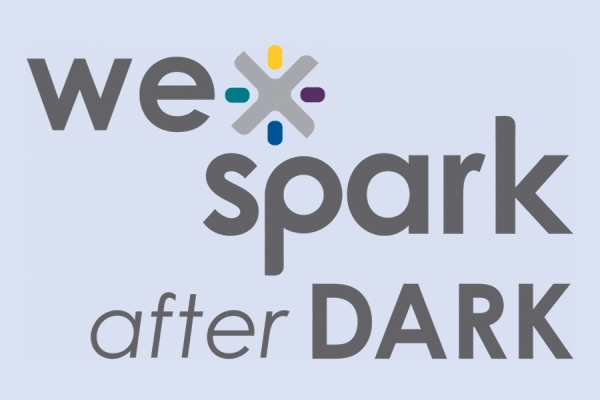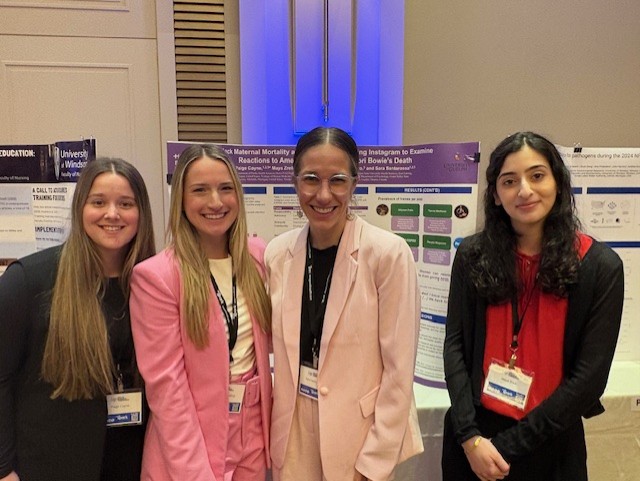
International health research conference proves a hub for innovation and collaboration Sara Santarossa, Paige Coyne, Ashley Redding, and Maya Zreik discuss a poster presentation at the International Health Research Conference hosted by the WE-Spark Health Institute. The third annual International Health Research Conference, hosted by the WE-Spark Health Institute at Caesars Windsor Convention Centre on March 22, brought together more than 350 researchers, clinicians, educators, and students from across Canada and the United States to engage with experts, foster collaboration, and explore the latest advancements in health research. Representatives from Erie Shores HealthCare, St. Clair College, Hôtel-Dieu Grace Healthcare, the University of Windsor, and Windsor Regional Hospital attended, alongside other esteemed institutions such as the Great Lakes Institute of Environmental Research (GLIER), Integrated Network for the Surveillance of Pathogens (INSPIRE), McMaster University, University of Calgary, University of Toronto, University of Waterloo, Western University, Henry…
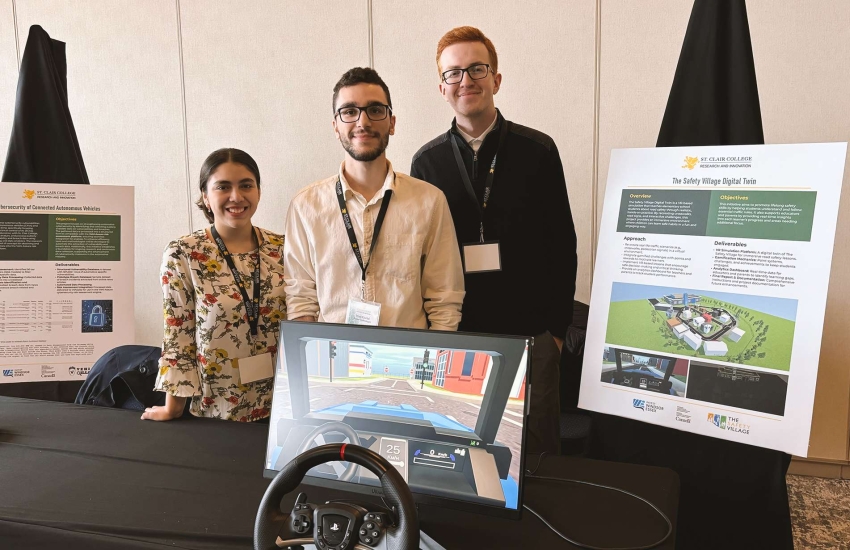
'Saints Strong: Marching Forward' event showcases the power of community collaboration Student researchers and Research and Innovation staff present their Safety Village digital twin project at the 'Saints Strong: Marching Forward' event on March 28, 2025. (Rich Garton/St. Clair College) At the heart of every thriving community lies the spirit of collaboration, and the Saints Strong: Marching Forward event proved to be a living testament to this. The event, held at the St. Clair College Centre for the Arts on March 28, 2025, was hosted by the Research and Innovation team and saw students, the local community, and industry leaders come together to share, learn, and grow. The theme, "Marching Forward," embodied the College's commitment to not only educating but also to making a meaningful impact where it matters most: the community. Through interactive sessions, podcasts, and live discussions, more than 120 attendees had the chance to engage with a diverse range of speakers, each reflecting the College's vision of thriving together. "This event…
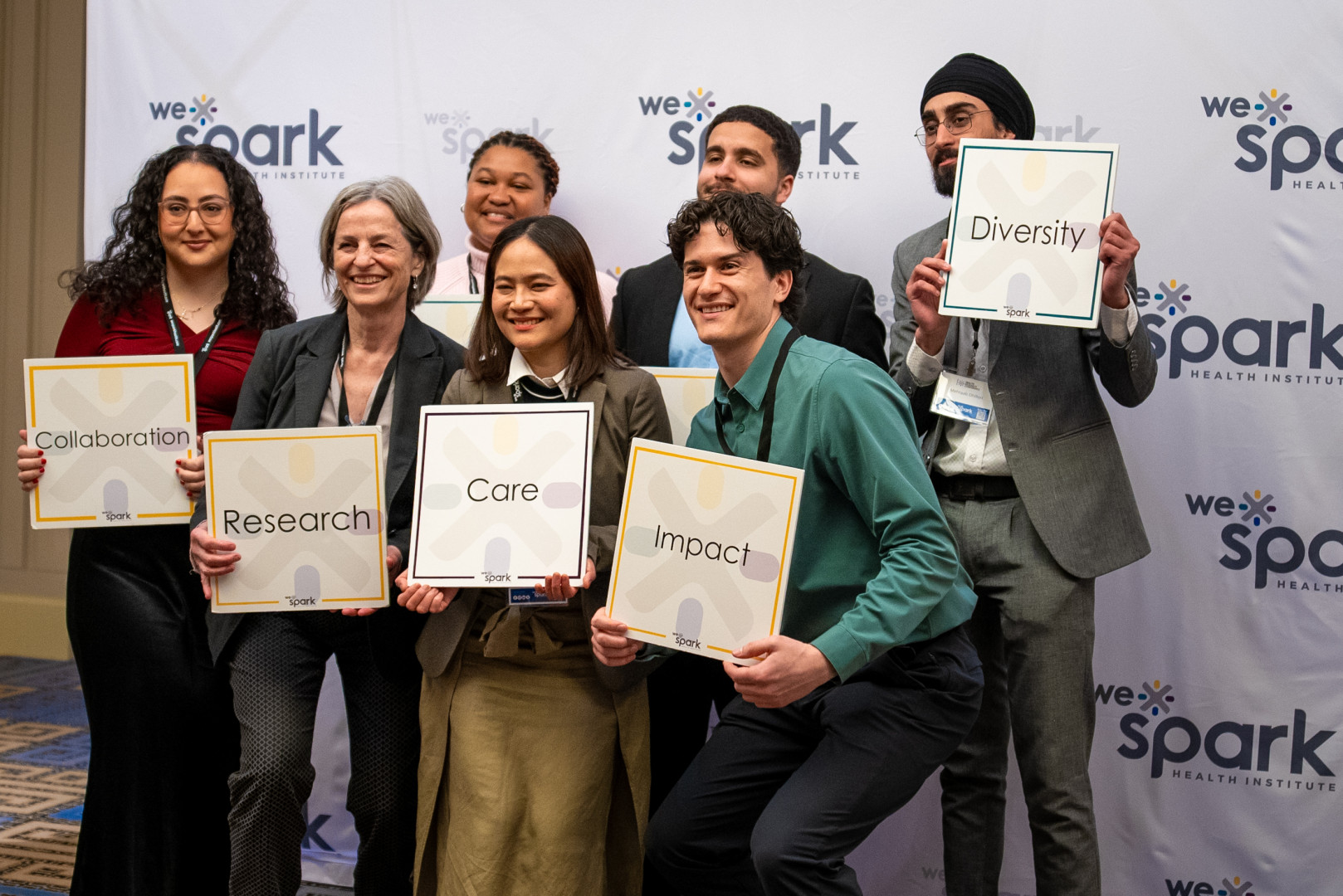
Health researchers discuss findings in Windsor-Essex Health researchers gathered in Windsor over the weekend, sharing their latest discoveries in three key topics. Health researchers arrived in Windsor over the weekend, ready to discuss their newest discoveries. The WE SPARK Health Institute hosted the event on Saturday, inviting experts from its partner institutions, including the University of Windsor, St. Clair College, the Windsor Regional Hospital, Erie Shores HealthCare, and Hotel-Dieu Grace Healthcare. The research displayed had a heavy focus on three key topics. “Cancer research, mental health, and community health as well,” said Dora Cavallo-Medved, WE SPARK Health Institute’s director. “We’ve been able to see that partners coming together to advance in these fields and actually make some changes in our policies, better caring for patients and their outcomes.” The conference was back after missing last year. Courtesy: https://www.ctvnews.ca/windsor/article/health-researchers-discuss-findings-in-windsor-essex/
Join the growing Windsor-Essex health research community at WE-SPARK After Dark Networking Event Connect with the dynamic and expanding network of health researchers at WE-SPARK Health Institute’s monthly networking event. This is a great opportunity to engage with others passionate about health research through both casual conversations and structured networking. WE-SPARK After Dark takes place from 5–7 p.m. on April 3rd at Bourbon Tap & Grill, 1199 Ottawa St., in Windsor. Whether you're an active member of the health research community or simply curious to learn more, this informal gathering provides a welcoming space to build meaningful connections. The first hour will focus on meeting like-minded individuals with an interest in health research. Registration is encouraged but not required—feel free to bring a friend or colleague you’ve been wanting to connect with. Click here to register.

Fueling Innovation: WE-SPARK Health Institute Launches 2025 Grant Call WE-SPARK Health Institute is pleased to announce the launch of its 2025 Igniting Discovery Grants Program, aimed at fostering early-stage, innovative health research and education projects in Windsor-Essex. These grants provide crucial funding to support research across all health domains. In addition to the core Igniting Discovery Grants, researchers may also apply for specialized funding opportunities sponsored by community and institutional donors, including: Black Scholars Institute Health Research Grant (Black Scholars Institute, University of Windsor) Brain Tumour Research Grant (Connecting for a Cause Community Group) Cancer Research Collaboration Fund Grant (Play for a Cure/Cancer Research Collaboration Fund) Childhood Cancer Research Grant (ChildCan) Hematopoietic Stem Cell Transplant Research Grant (Katelyn Bedard Bone Marrow Association) Seeds4Hope Grants (Windsor Cancer Centre Foundation) Tayfour and Emara Research Grant (Dr. Fouad Tayfour & Dr. Barry Emara University of Windsor…
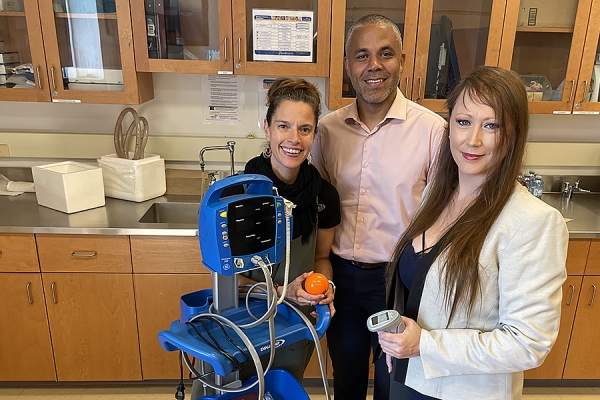
Study seeking volunteers to explore prevention and treatment of high blood pressure among Black populations Kinesiology professors Cheri McGowan, Kevin Milne, and Paula van Wyk are conducting research on isometric handgrip training as a treatment for high blood pressure among Black populations. One in five people has high blood pressure or hypertension, increasing their chances of heart disease and even death. Black populations are at an increased risk of having high blood pressure, and of having more severe complications. Yet individuals who identify as Black remain under-represented in research for high blood pressure. WE-Spark core principal member Paula van Wyk and her co-investigators in the Department of Kinesiology, Cheri McGowan and Kevin Milne, invite interested individuals to volunteer as a participant exploring the effectiveness of isometric handgrip exercise as an approach to preventing and treating high blood pressure among Black populations. They are looking for volunteers to come to the Physical Activity & Cardiovascular Research Laboratory in the Human Kinetics Building to complete…
March networking event to bring together Windsor-Essex Health Research Community Connect with the dynamic Windsor-Essex health research community at WE-SPARK Health Institute’s monthly networking event. This is a great opportunity to engage with others passionate about health research through both casual conversations and structured networking. WE-SPARK After Dark takes place from 5–7 p.m. on Thursday, March 6, at Bourbon Tap & Grill, 1199 Ottawa St. Whether you're an active member of the health research community or simply curious to learn more, this informal gathering provides a welcoming space to build meaningful connections. The first hour will focus on meeting like-minded individuals with an interest in health research. Registration is encouraged but not required—feel free to bring a friend or colleague you’ve been wanting to connect with. Click here to register.
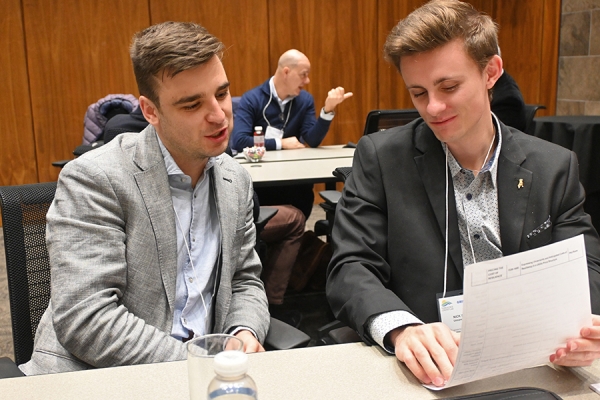
Exploring electrical outages earns opportunity for engineering undergrads Second-year engineering students Josh Martin and Nick Schembri presented their research into vulnerabilities in the electrical grid at a workshop last week. Nick Schembri and Josh Martin, students in the Department of Mechanical, Automotive, and Materials Engineering, were eager to get research experience early in their university careers. The two began working with professors Rupp Carriveau and Jacqueline Stagner in their first year of study and now, in just their second year, had the opportunity to present their findings before a room filled with industry leaders and academic experts. The students were tasked with investigating North American grid outages and how the electrical grid is impacted at the neighborhood transformer level by new and disruptive loads. They were responsible for measuring grid vulnerability and providing a comprehensive analysis of their findings and writing journal papers. “The students were given a significant responsibility early on, and they rose to the…
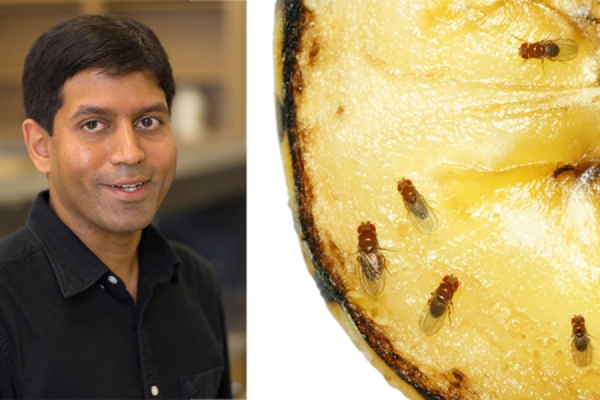
Research chair to support exploration of neural disorder Biomedical science professor Jeff Dason is the Faculty of Science research chair. The Faculty of Science has named Jeff Dason as its 2024-2026 research chair. “I’m thrilled to receive this chair, as it will allow me to further expand my research program,” says Dr. Dason. The associate professor in the Department of Biomedical Science started at the University of Windsor in 2017. The award comes with a two-year grant of $40,000. The new position will allow him to further develop his research into the nervous system disease, Fragile X syndrome (FXS). “Fragile X Syndrome is a heritable neurodevelopmental condition that affects one in 3,000 to 6,000 individuals and is the leading contributor to intellectual disability and autism,” he says. “FXS is characterized by altered synaptic structure and function that results in various behavioural effects, including cognitive deficits.” No effective treatments for FXS currently exists even though the underlying cause of many of its symptoms…








